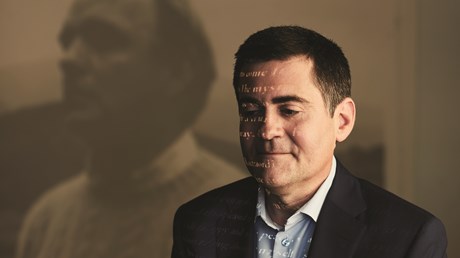How Frederick Buechner changed the course of Russell Moore’s life.

Years ago, I found myself sitting at the dinner table of one of my literary heroes, Wendell Berry, on his farm in Henry County, Kentucky.
At the end of the evening, Berry made it clear it was time for me to go by saying something along the lines of, “Well, it’s been good to have you.” I couldn’t leave, though, without telling the agrarian novelist and poet how much his writing had meant to me—while attempting to sound like a Christian academic rather than a giddy fanboy. His response was less a thank-you than a benediction.
“Isn’t it something, how we get what we need at just the right time?” he said. “The right book comes along at just the right time. The right friend comes along at just the right time. The right conversation comes along at just the right time. It’s grace.”
His words left me bursting with gratitude, but not only—or even primarily—for Berry. As I left his farm, I couldn’t help thinking of two authors who came along right when I needed them: C. S. Lewis and Frederick Buechner.
Lewis won’t come as a surprise to most of my fellow conservative evangelicals (even though we occasionally disagree with some of his theological positions). Many of us have the same story—of walking through the old man’s wardrobe into mere Christianity and an intellectually defensible Christian theism. But Buechner (pronounced BEEK-ner) is a little harder for some in my tribe to get. At first glance, he doesn’t seem like one of us. He came to embrace his Christian calling not at a Billy Graham crusade, but in the Sunday services of New York modernist George Buttrick. Buechner studied for ministry at Union Theological Seminary, haunt …
Source: Christianity Today Most Read